S4E4 (episode 34): Maggie Lin on immigrating into foster care and exiting the system

In this episode, Maggie and Jeffrey discuss her immigration to the US as a child and struggles through the foster care system, as well as how she ended up at Dartmouth College, her philosophy background, her years living in India and Mongolia, her journey of starting and growing Foster Nation, and much more…here is Maggie Lin on People are the Answer.
Watch this episode on YouTube
Learn more:
Foster Nation: Website – https://www.fosternation.org/
Instagram – https://www.instagram.com/thefosternation/
Facebook – https://www.facebook.com/TheFosterNation
Twitter – https://twitter.com/thefosternation
CareerX – fosternation.org/careerx
For most, turning 18 is a moment of anticipation and potential: a milestone that ushers in the freedom and possibilities of finally reaching adulthood. But what if turning 18 meant being turned out on the streets? What if it meant you lost the support you needed to start your life as a young adult? What if your circumstances were filled with setbacks that most teens didn’t face?
For the approximately 26,000 foster youth who “age out” of the system each year – reaching legal adulthood without being placed in permanent adoptive homes – these what-ifs are dire realities. Former foster youth are less likely than the general population to graduate high school or to attend or graduate college, and 20% will become “instantly” homeless.
As a former foster youth who moved through eight different placements, Maggie Lin knows first-hand how critical support and resources are during this “aging out” transition point. But she also knows her story turned out differently than most foster youth. Maggie succeeded in college in part because at her last home placement she had a healthy environment and a foster family who supported her transition to adulthood. More than a decade after graduating from Dartmouth College, Maggie now leads Foster Nation, a non-profit dedicated to empowering foster youth as they age out of the system.
Launched in 2016 in partnership with The Pritzker Foster Care Initiative and Foster Care Counts, Foster Nation seeks to provide equal access to opportunity for former foster youth. Foster Nation engages communities to support foster youth aging out of the system, helping them become self-sufficient, successful college students and/or young adults. The organization addresses the challenges faced by former foster youth with financial resources, donated essentials, social support and mentorship.
“Kids who have families can pick up the phone and call mom and dad if they have a question, or to ask for resources they need. So many of our foster students just don’t have that,” says Maggie Lin, Founder, Foster Nation. “Equal access to opportunity is about having the basics that every person needs — with or without a family — in order to have a chance at succeeding in life.”
Foster Nation’s programming focuses on providing the community support and basic fundamental resources former foster youth need. The organization leads ongoing campaigns that provide free meals; clothing for everyday confidence or interviews; and basics like hygiene products and laundry detergent. COVID-19 has only made these efforts more urgent, as former foster youth who rely on colleges for secure food and housing are forced to face a compounded crisis.
One of the most important resources Foster Nation offers its members is community support. “I remember being in college and feeling like the only person who didn’t have family or people to rely on,” says Maggie. Holiday, graduation and birthday gift-giving programs help members feel loved as they celebrate milestones. Meanwhile, social awareness initiatives, like their #SpeakUp series, help break down stigma and change the way the public thinks about former foster youth.
Today, Foster Nation partners with 44 colle


